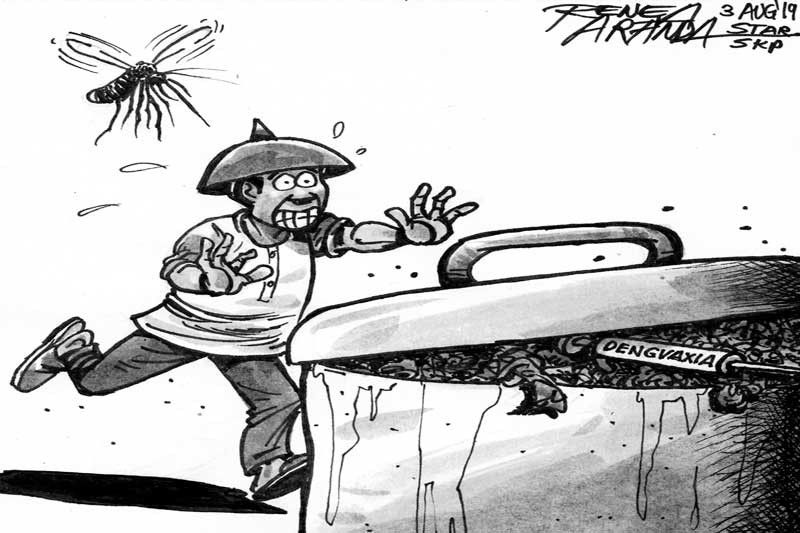EDITORIAL - Reviving Dengvaxia

Last July 8, the World Health Organization included the anti-dengue vaccine Dengvaxia in its 2019 Essential Medicines List. Over 150 countries use the list, according to WHO Director-General Tedros Adhanom Ghebreyesus, “to guide decisions about which medicines represent the best value for money, based on evidence and health impact.” The list also encourages universal access to the medicines and not just to those who can afford them.
The inclusion of the vaccine on the WHO list has attracted attention in the Philippines, where 115,986 dengue cases have been recorded from Jan. 1 to July 6, with 491 deaths – up from the same period last year when 336 deaths were recorded.
No one has a solid explanation for the spike; some experts say there is a periodic surge in dengue cases every two or three years. But the severity of the problem has prompted calls for the lifting of the ban on the use of Dengvaxia, this time with the appropriate warning from the manufacturer itself, Sanofi Pasteur, about the risks of administering the vaccine on those who have never been stricken by dengue.
Criminal charges have been filed mostly against officials of the previous administration for what critics say was the careless rush to administer the vaccine to over 800,000 people, mostly school children. Deaths attributed to Dengvaxia, although still not conclusively established by reliable experts, caused a public scare that derailed even long tested immunization programs for illnesses such as measles and other potentially life-threatening childhood afflictions.
A resurgence of measles and reports of numerous deaths from the disease weakened the immunization scare. Parents went to health centers in droves to have their children vaccinated against measles. With public confidence in vaccines returning, certain organizations of doctors and other health professionals are pushing for the lifting of the ban on Dengvaxia. They argue that dengue preventive measures such as keeping surroundings clean and free of stagnant water can only go so far, and are best complemented by vaccination.
Considering the country’s experience with Dengvaxia so far, if the government does decide to reintroduce the vaccine, it must proceed with caution. Dengue is easily misdiagnosed, and there is still no foolproof test for determining if a person has a history of dengue. There are suggestions to start with pilot areas before going full-blast on mass vaccination, and to initially make it purely voluntary. The public must be fully informed of the risks, and expectations must be managed: the vaccine does not work for certain strains of dengue. Lessons should have been learned from the introduction of the vaccine into the country.
- Latest
- Trending




























